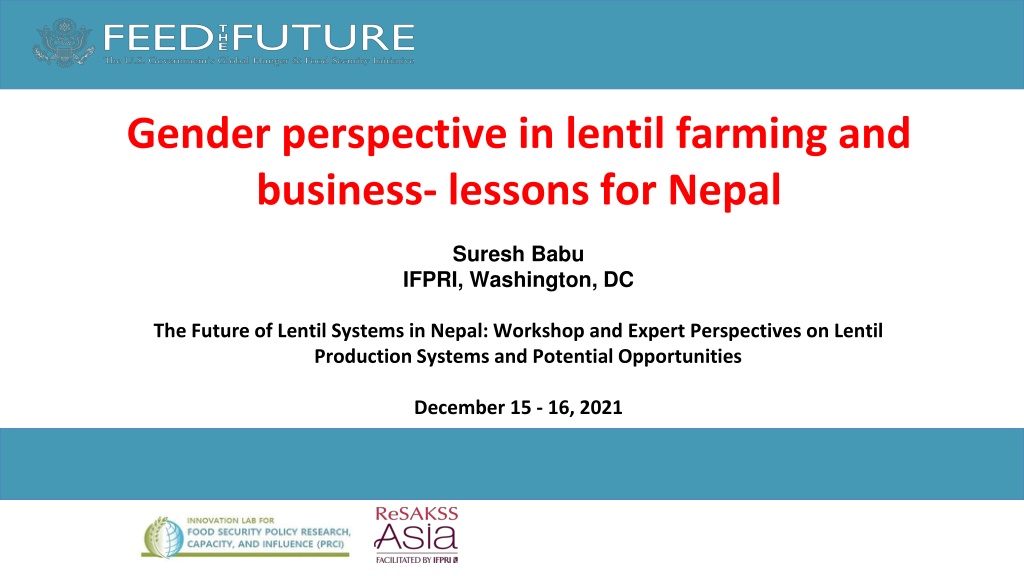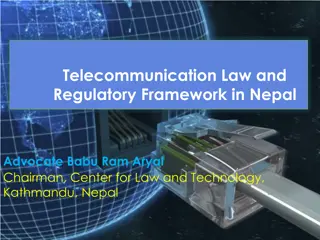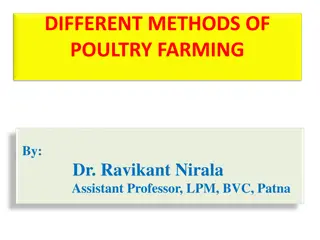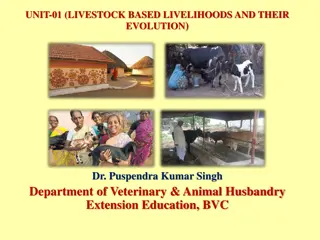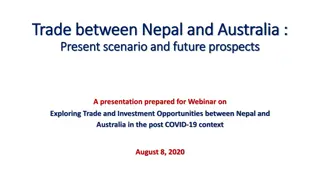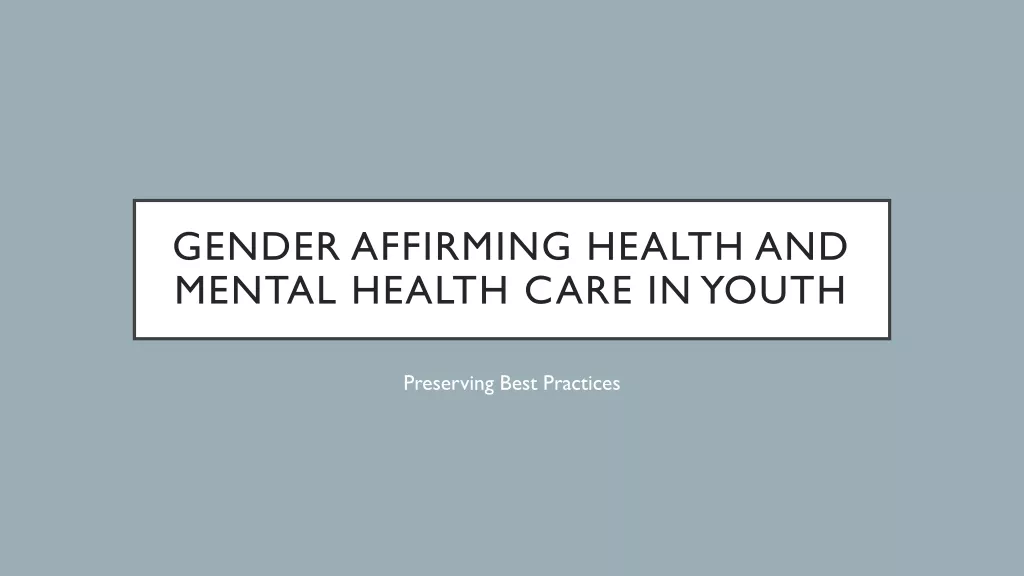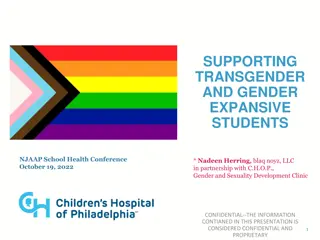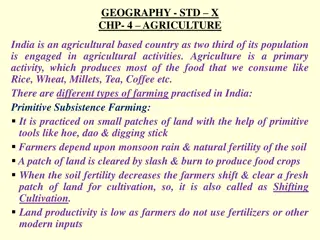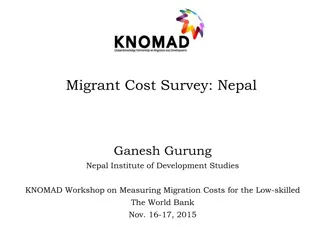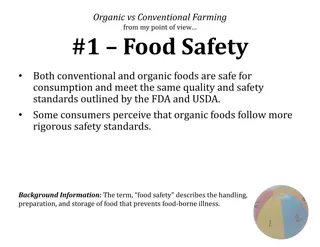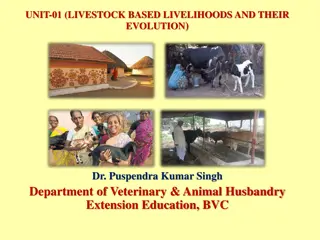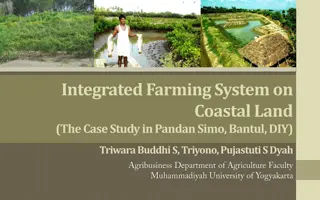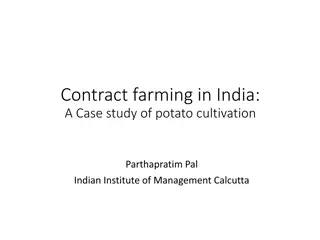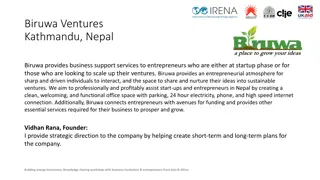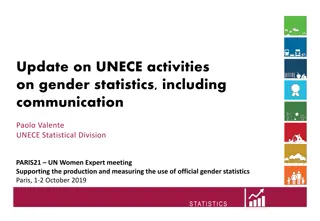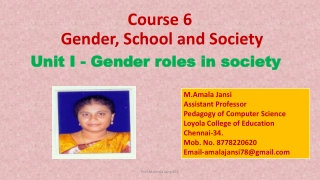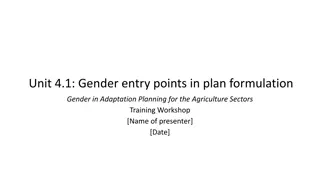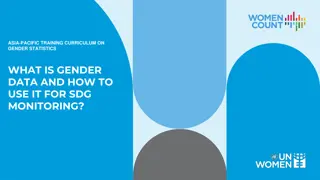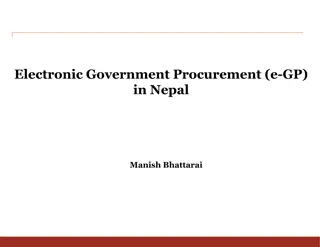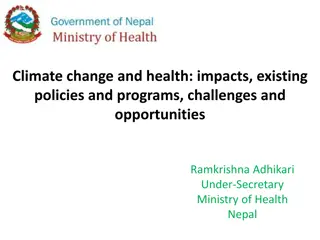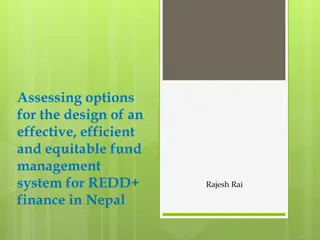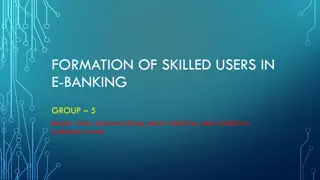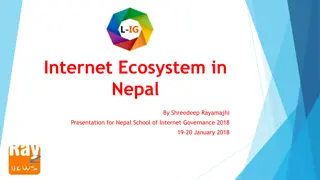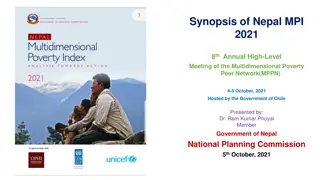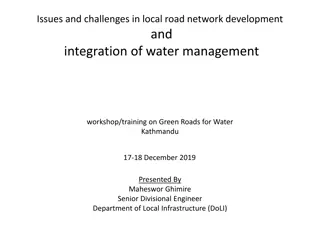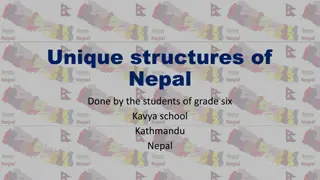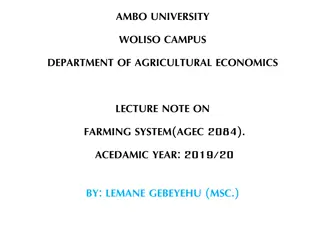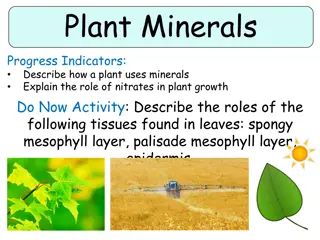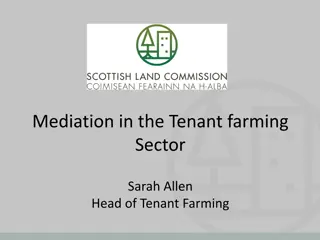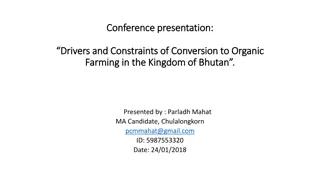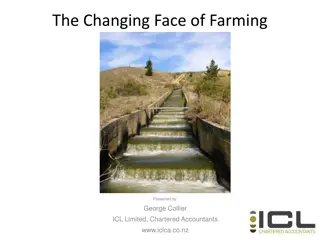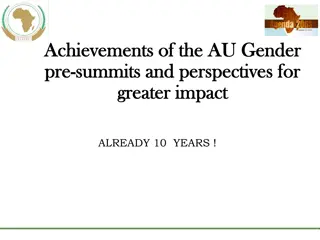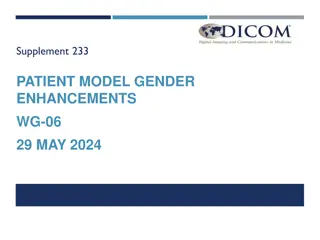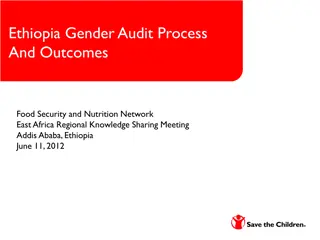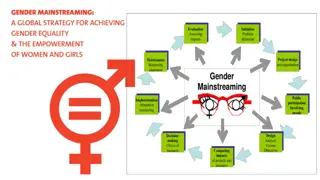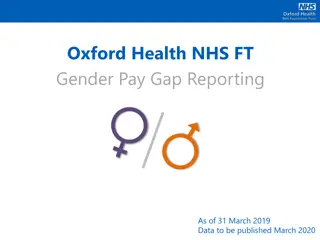Gender Perspective in Lentil Farming and Business: Lessons for Nepal
This presentation by Suresh Babu from IFPRI, Washington, DC, focuses on gender issues in lentil production and marketing in Nepal. It covers analytical, policy, institutional, farm production, and marketing perspectives, highlighting research needs and concluding remarks. The literature and sources informing the presentation include reports from workshops and projects related to gender assessment in agriculture. It addresses gender and social inclusion dimensions in farming systems, emphasizing access to resources, assets, and opportunities for reducing disparities and empowering women farmers. Objectives include analyzing power dynamics, cultural norms, and constraints to access and control of assets in the context of gender equality and social inclusion.
Uploaded on Sep 30, 2024 | 0 Views
Download Presentation

Please find below an Image/Link to download the presentation.
The content on the website is provided AS IS for your information and personal use only. It may not be sold, licensed, or shared on other websites without obtaining consent from the author. Download presentation by click this link. If you encounter any issues during the download, it is possible that the publisher has removed the file from their server.
E N D
Presentation Transcript
Gender perspective in lentil farming and business- lessons for Nepal Suresh Babu IFPRI, Washington, DC The Future of Lentil Systems in Nepal: Workshop and Expert Perspectives on Lentil Production Systems and Potential Opportunities December 15 - 16, 2021
Outline of the presentation Gender issues in Lentil production and marketing Analytical framework Policy perspectives Institutional perspectives Farm production perspectives Marketing and agrobusiness perspectives Research needs Concluding remarks
Literature and sources informing this presentation FAO. 2019. Country gender assessment of agriculture and the rural sector in Nepal. Kathmandu.76 pp Dina Najjar, International Center for Agricultural Research in the Dry Areas (ICARDA) Protecting Ethiopian Lentil Crops Initiation Workshop, October 11-13, 2021 Recent reports from priority setting and technical workshop with the Ministry of Agriculture and IIDS under USAID FTF Food Security Innovation Lab on Policy research, Capacity and Influence (MSU, IFPRI, and IIDS June and September 2021) PRCI and KISAN II workshop on Policy Analysis Training for Officers of the Government of Nepal (8-12 March 2021, Kathmandu, Nepal) Other USAID and donor funded projects
Gender and Social Inclusion Dimensions in Farming Systems Access to resources, assets and opportunities Control over resources, assets and opportunities Benefit from resources, assets and opportunities Gender Equality, Female Empowerment, Youth Engagement reduce disparities Increase women/ girls capability for their rights, life outcomes, decision-making Access to inputs, labor, and markets for processed products Inclusion of women in the value chain development Empowerment of women farmers in the form of farmer producer
Objectives of Gender Equality and Social Inclusion Analysis (Source: CARE implemented USAID funded project Titukulane) Classify patterns of power & decision- making Identify cultural norms, beliefs, practices and gender-based barriers Identify positive trends, models on gender roles and socio-norm OBJECTIVES Analyze challenges and constraints to access and control of assets and resources
Broad results from the literature on gender analysis applicable to Nepal Human capacity skills, knowledge, and participation needs improvement Equality in decision making and in control of the benefits often depends on access and ownership of assets and resources. Women and youth do not have same access assets, technology, markets, and other benefits from interventions Culture, norms, and beliefs play important role in women empowerment Interventions should involve both men and women
Gender Issues Lentil farming systems Role of Lentil in faming system as they affect gender issues? Is Lentil a women crop? What share of income does Lentil constitute Women s income? Is lentil production subsistence, commercial, or a nutrition- oriented? Based on the above, what traits are needed for promoting Lentil in Nepal farming system? What are the preferences for marketing and commercial production? What issues arise when women try to adopt lentil in the farming system and try adopt specific varieties from their preferences? What policy, institutional, technology changes (breeding and other innovations) needed?
Policy perspectives Gender-bias exists at policy and legislative levels. Eg: Ensuring women s ownership of land is still a challenge. Gender equality policies and laws not implemented on the ground for the benefit of rural women. Government policy should go beyond from program and project participation to gender inequalities in agriculture and the wider rural economy. Gender gaps in agriculture - lower adoption of modern varieties by women lentil producers Linking food and nutrition outcomes in policy Reference: FAO. 2019. Country gender assessment of agriculture and the rural sector in Nepal. Kathmandu.76 pp
Production and technology perspectives Gender gaps in production agriculture Lower adoption of modern varieties by women lentil producers Consequences of Lentil production for the women nutrition and food security outcomes. Breeders are concerned to make lentil production women friendly what are the varietal preferences? How to include more women in the benefits of MVs?
Results from the Ethiopian Study on Gender Analysis of Lentil production (Dina Najjar, International Center for Agricultural Research in the Dry Areas (ICARDA)) Resistance to rust Market price Yield/productivity Taste Ability to split properly (+traders and processors) Ability to dry without spoiling (storage) (+traders and processors) Amount of residue
Marketing oriented interventions Identify select agriculture cooperatives and farmer groups to encourage collective marketing. Improve capacities of the selected lentil producing cooperatives and farmer groups Agricultural Knowledge Centers should provide strong mentoring support for women lentil production Create necessary marketing infrastructure for women to participate in lentil marketing including access to digital agriculture
